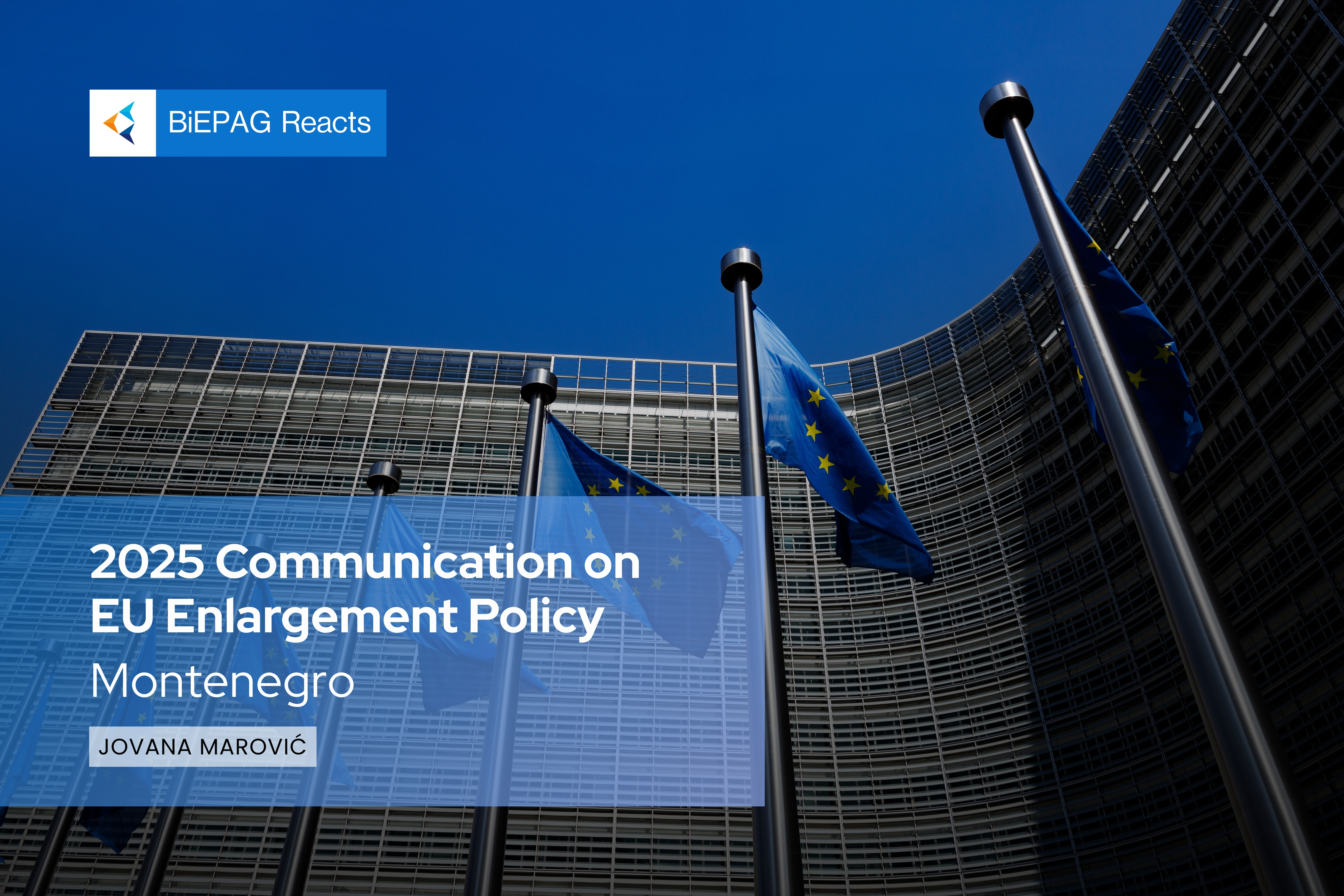

The European Commission’s 2025 report on Montenegro offers the most encouraging assessment the country has received since the start of accession negotiations. With an average progress score of 3.63, Montenegro emerges as the most advanced candidate in the Western Balkans. The report’s tone is unmistakably positive yet carefully measured: nearly every chapter notes at least some degree of progress. Still, between the lines, a clear warning emerges — momentum is fragile, reversible, and contingent on political conditions.
The report demonstrates that Montenegro can move quickly when political will, coordination, and expertise align. The most serious concern is the shift in priorities after Montenegro received IBAR in June 2024. Instead of using IBAR as a roadmap to intensify reforms in the rule-of-law chapters — institutions redirected their attention to easier, technical chapters that could be closed more quickly. As a result, Chapters 23 and 24 lost momentum; their scores fell to “some progress” and “limited progress.” Brussels’ message is unequivocal: without credible, measurable reforms in these two chapters, nothing else matters. They remain the key that unlocks every other door.
Beneath these shortcomings lies a deeper structural problem: institutions remain vulnerable to political interference. Parliament’s unilateral decision to retire a Constitutional Court judge triggered a serious constitutional crisis and undermined the separation of powers. The delay in implementing the June 2025 Venice Commission recommendations further illustrates the fragility of judicial independence. At the same time, roughly a quarter of judicial and prosecutorial positions remain vacant, slowing proceedings and weakening credibility.
The fight against corruption still lacks systemic effect. Although high-level arrests have increased, final convictions remain rare. Electoral reform — which should strengthen transparency and integrity — was carried out without full consultation and only partially addressed ODIHR and GRECO recommendations. Meanwhile, gender representation remains low despite a new rule requiring 40% of candidates to come from the under-represented gender, and broader protections for vulnerable groups continue to lag.
Political polarisation continues to hamper parliamentary functioning. The Prime Minister’s repeated absence from Parliament and refusal to answer questions weakens oversight and erodes democratic standards. Frequent ad hoc decision-making and “telephone sessions” of the government further underscore poor institutional coordination.
Montenegro’s negotiating structure remains functional, but lacks the depth of expertise and stability required for the final phase of talks. Although several chapters are close to closure — particularly in agriculture, fisheries, services, and finance — the pace of negotiations has slowed compared with regional peers such as Albania, which held five intergovernmental conferences over the same period.
This places Montenegro in a paradox: it has received its strongest report to date, yet nothing guarantees achievement of the 2026 objective. The Commission’s conclusions are encouraging precisely because they are realistic — positive yet nuanced; optimistic yet conditional.
However, Montenegro still has a genuine opportunity to close negotiations by the end of 2026. That window is open because Brussels continues to believe the country can deliver. But this belief comes with stricter expectations: rule-of-law reforms must return to the centre of the process, rather than being sidelined in favour of quicker technical gains.
Of particular concern is the resurfacing idea that new members could join the EU under some form of “probationary membership,” including accession without voting rights. Such proposals are both misguided and misleading. It is equally troubling that publication of the internal reform document — intended to underpin enlargement — was postponed until next year. If probationary membership ever made sense, it would have been ten years ago; today it would represent yet another failure of the EU’s enlargement policy. Introducing it now would make Montenegro a test case in managing failure, not success.
A more credible pathway exists within the current enlargement framework. Instead of creating quasi-membership categories, the EU should move toward preparing the Accession Treaty. The process of drafting treaty text increases technical scrutiny, conditions reforms, and anchors political expectations.
To seize this moment, Montenegro must focus on political leadership and credible rule-of-law reforms, while the EU must maintain strong engagement — culminating in preparation of the Accession Treaty. Used properly, the Treaty would serve not only as an incentive but also as a corrective tool, ensuring that commitments are measurable, obligations enforceable, and reforms tied to clear political consequences.
If the EU chooses this path, Montenegro could become an example for the region. If not, enlargement risks reinforcing the very cynicism it claims to overcome. The next year will show whether both sides are ready to turn opportunity into results.